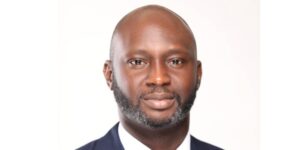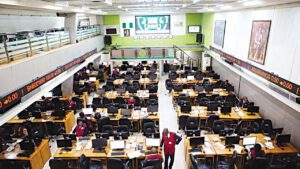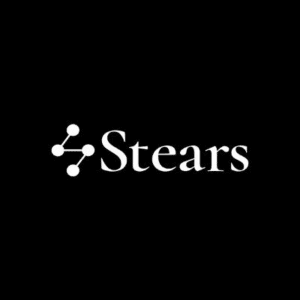
Supreme Court affirms IST’s Jurisdiction on capital market disputes
By Philemon Adedeji
The Supreme Court has affirmed the Investments and Securities Tribunal’s (ISTs) jurisdiction over capital market disputes in the country.
Director General of the SEC, Mr. Lamido Yuguda, who disclosed this during an interview while reacting to the judgement, said the landmark decision confers exclusive jurisdiction on the IST to determine all issues listed in Section 284 of the Investment and Securities Act (ISA) 2007.
He said, “On January 13, 2023, the Supreme Court of Nigeria delivered a landmark decision with enormous implication for capital market dispute resolution. This was in the case of Mufutau Ajayi vs SEC with Supreme Court number SC/314/2007. Many capital market practitioners have eagerly awaited the outcome of this case which remained pending at the Apex Court for 15 years before it was finally decided.”
The SEC DG stated that the Supreme Court while delivering its judgment in the appeal on January 13, 2023 after going through the facts and history of the matter and reviewing the submissions of the learned counsel representing both parties, found as a fact that the SEC took adequate and sufficient steps to notify the Appellant of the sittings and proceedings of the APC.
He said, “More so, SEC did not act as a judge in its own cause since it acted on a complaint by Sadiq Petroleum Limited (SPNC), a core investor that subscribed 30 per cent of the shares of African Petroleum Plc. Accordingly, the Appellant cannot continue to seek for the grant of the order of certiorari when it was clear that the conditions for the grant were unavailable to him.
“More important however, was the decision of the apex court on the issue of jurisdiction over capital market matters. The Supreme Court held that the main issue in the appeal was that the Federal High Court declined jurisdiction in the matter, which decision was affirmed by the Court of Appeal.”
After reviewing the applicable laws on the actions of the SEC and its Administrative Proceedings Committee APC, the apex court stated, “Based on the foregoing, it implies that any grievance, whether on denial of fair hearing by the APC as in the present case, rule of law, equity, facts or law, etc., should be instituted in the Investment and Securities Tribunal (1ST). It is unequivocal that the proper forum with jurisdiction to hear and determine the case of the Appellant is the Tribunal and not the Federal High Court.
“The above decision of the Supreme Court has finally settled this issue. The jurisdiction conferred on the Investments and Securities Tribunal to determine all the issues listed in Section 284 of the Investments and Securities Act, 2007 remains exclusive and cannot be shared with any other court of law. One of such issues relates to any decision or determination made by the Securities and Exchange Commission in the operation of the Act,” he added.
In year 2000, the National Council on Privatization offered for sale on behalf of the Federal Government 86,400,000 ordinary shares of AP Plc. A year later, (i.e. in April 2001), a core investor of AP Plc alleged in a press conference that the past management of the company had failed to disclose debts of N22.5 billion owed by the company to various creditors. It also alleged that the auditors of AP Plc were negligent in the auditing of the company.
The Securities and Exchange Commission (SEC) set up a Committee to investigate the allegation. The findings of the Committee affirmed that the sum of N10, 181,606 billion disclosed in the prospectus of AP Plc was less than what the company actually owed as at June 30 1999.
Mufutau Ajayi was not a director in African Petroleum Plc but was the company’s Finance and Accounts Manager. The Administrative Proceedings Committee of the SEC found that Mufutau Ajayi, being an officer of AP Plc authorised the issue of the prospectus dated 30th March 2000 which contained an untrue statement to wit: that the total indebtedness of the company as at 30th June 1999 was N10.2 billion whereas subsequent revelations indicated otherwise, thereby contravening the provisions of sections 62 (1), (2) (d) and 63 of the ISA 1999.
Although Mr. Ajayi did not show up at the investigative hearing of the Administrative Proceedings Committee despite being invited, the Committee made the following findings against Mr. M.C. Ajayi namely that: although Mr. Ajayi was not a Director of the company, he was a principal officer who played a major role in obtaining the Commercial Papers (CPs) and Bankers’ Acceptances (BAs) that led to the concealed debt; his conduct prior to the offer for sale by denying the auditors access to relevant financial records during the auditing exercise is very reprehensible and highly unprofessional; that his role bordered on economic and financial crime; and that there was enough evidence to refer his matter to the Economic and Financial Crimes Commission (EFCC).
Consequent upon the above findings, the Administrative Proceedings Committee directed as follows namely that: Mr. Ajayi be strongly reprimanded for his role in the debt concealment; He is therefore disqualified from being employed or participating, in any capacity, in the securities industry; Mr. M. C. Ajayi be referred to the Economic and Financial Crimes Commission (EFCC) for further criminal investigation and action; and the Institute of Chartered Accountants of Nigeria (ICAN) and all professional bodies to which Mr. Ajayi belongs shall be informed of his actions and this Decision.
Upon being notified of the decision of the SEC via a letter dated April 19, 2004, Mr. Ajayi approached the Federal High Court for judicial review of the decision in Suit No. FHC/ABJ/CS/285/2004 – MUFUTAU AJAYI VS SEC & ANOR. The Securities and Exchange Commission through its counsel raised an objection to the jurisdiction of the Federal High Court to hear and determine the case.
The Court upheld the objection and held that the proper venue for the Plaintiff to take the matter to was the Investments and Securities Tribunal and not the Federal High Court.
The Plaintiff being dissatisfied with the decision of the Federal High Court, appealed to the Court of Appeal in Appeal No. CA/A/200/M/2005 – MUFUTAU AJAYI VS SEC. The Court of Appeal affirmed the ruling of the Federal High Court in its judgment delivered on May 8, 2007.
The Plaintiff (now Appellant) took the matter further to the Supreme Court by a Notice of Appeal he filed on August 2, 2007.



